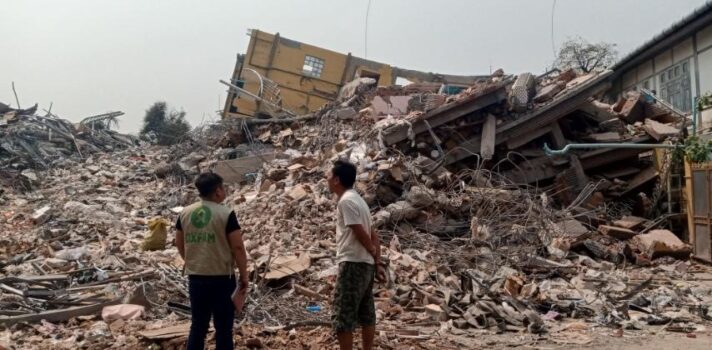MONTREAL – A woman working as a traffic control person on a road construction project was killed on the job yesterday in Montérégie, marking the third such workplace death in Quebec in the last two months.
Last week, a member of Syndicat des Métallos/United Steelworkers (USW) Local 8922 was killed on the job in the Beauce area while working as a traffic control person, while another traffic control worker was killed in the Montérégie area in early October.
The death toll on road construction sites in Quebec comes at a time when the government has postponed the tabling of its reforms of occupational health and safety legislation and the implementation of prevention measures in all work sectors.
“The safety concerns for traffic control workers are high. Drivers are so used to orange cones on the roadway that they no longer adapt their driving accordingly. Employers and clients who use companies that provide traffic control workers must assume their responsibility and ensure the safety of these workers on construction sites. It is a shared responsibility,” says Patrick Pellerin, President of USW Local 8922, also known as the Syndicat de la sécurité privée au Québec, which represents nearly 1,000 traffic control workers.
The USW notes that only 11.6% of Quebec workers are covered by prevention-related provisions of provincial health and safety legislation, such as joint (labour-management) workplace health and safety committees, dedicated prevention representatives and prevention programs specific to individual workplaces. The labour movement has long advocated that such provisions should apply to all workplaces.
Quebec’s Labour Minister previously suggested reforms to workplace health and safety legislation would be tabled before the holidays, but that timeline has obviously been postponed, the USW says.
“How many more deaths will it take before prevention is taken seriously in Quebec?” asks USW Quebec Director Alain Croteau.
“One preventable death is one too many. The government must make prevention a real priority in all workplaces. This requires preventive mechanisms in which workers are involved. They know the work, they know the risks and they are in the best position to propose solutions,” Croteau says.
Share on Facebook



